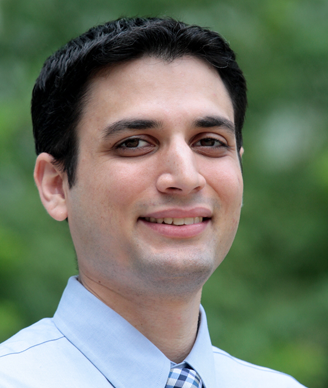Vita Brevis, Ars Longa: Why I Chose to Be a Doctor
We are in the midst of a radical shift in the way modern medicine is practiced, and there are many challenges facing physicians today. So, why did I become one?
Aaron Falchook, MD

We are in the midst of a radical shift in the way modern medicine is practiced. The transition from paper charts to electronic health records, the increasing complexity of medical decision making, and the uncertainty about healthcare reform are only some of the challenges facing physicians today. These factors, combined with demographic changes in the US population, create an environment where physicians may feel that they are being asked to work as medical practitioners, administrators, billing experts, and documentation specialists, while seeing more patients in ever-shorter office visits. Given these difficulties, it is not surprising that nearly half of all physicians in one survey reported at least one symptom of burnout.
Recently, I was speaking with a friend who works in the telecommunications industry and he asked me if I thought that medicine was a good career choice for young people today. I took a moment to consider how to respond. The challenges I described here, as well as many other difficulties facing our field, quickly flashed through my mind, but my answer was unequivocal. I recognize that practicing medicine is not the right choice for everyone. However, for individuals with a love of science, strong work ethic, and an appreciation for the miracle that is the human body, medicine is one of the most fulfilling and rewarding of all career choices. As I continued to ponder this question after our conversation ended, I recalled the Hippocratic aphorism, shown below in the Latin and English idiomatic translations:
Vita brevis,
ars longa,
occasio praeceps,
experimentum periculosum,
iudicium difficile.
Life is short,
and art long,
opportunity fleeing,
experience perilous,
and decision difficult.
Life is fleeting. The decision to become a physician is made with the full knowledge that just the initial training for this vocation will not be complete until perhaps one-third of the span of our lives has passed. Despite the daunting investment of effort, time, and money required to become a physician, thousands of people embark on this path every year-a testament to the strength of the calling to medicine.
The task is great. We are blessed to inherit a vast trove of medical knowledge, accumulated from innumerable lifetimes of effort contributed by our predecessors. Furthermore, medical knowledge is expanding at an exponential pace. Simply keeping up with the newest advances in the field of medicine would create more than enough work for a full-time occupation. Yet, as physicians, our primary job is to care for patients, while simultaneously staying abreast of the newest research to ensure that we provide the best care possible. In addition to these duties, many physicians participate in research, education, advocacy, or other volunteer work. Balancing these responsibilities with one’s personal life is a formidable task.
At best, we have several short decades in which to practice and hone our skill, cure and alleviate illness, and contribute to the best of our ability. In times of stress and uncertainty, it is helpful to recall what draws us to medicine and remember, labor ipse voluptas.